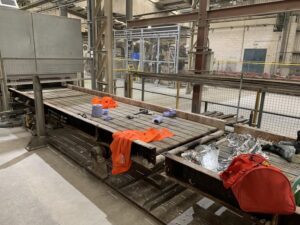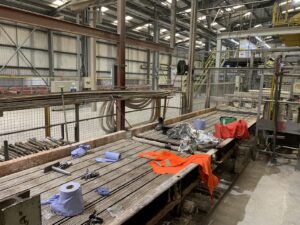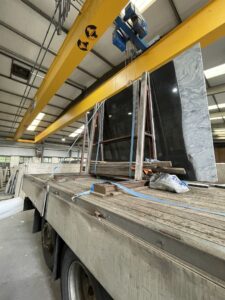Plant hire company fined £10,000 after employee struck by falling JCB bucket
- A mechanic suffered multiple fractures and a crushed foot when a one-tonne JCB bucket fell on him
- HSE investigation found appropriate equipment had not been used
- Guidance states elevated vehicle load areas should be effectively propped if access is needed below
A plant hire company has been fined after a mechanic suffered life-changing injuries when a JCB bucket fell on him while he was helping to repair a tipper truck.
On the 24 October 2023, the employee of Salford Grab Hire Limited was assisting a colleague in repairing a broken lifting mechanism on a tipper truck body. A JCB was being used to prop up the tipper body in the raised position when the one-tonne bucket became dislodged and fell.
The worker suffered multiple fractures to his hand, shoulder blade, ribs, shin and thigh, as well as a crushed ankle and foot. He also developed a blood clot in his lungs as a result of the incident.
An investigation by the Health and Safety Executive (HSE) found that Salford Grab Hire Limited had not used appropriate equipment to support the tipper body during repairs. The bucket being used to prop up the body did not have a quick hitch or retaining pin, causing it to become dislodged and fall.
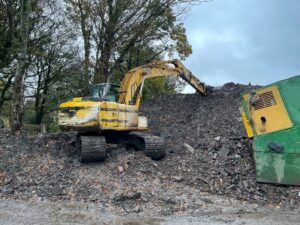
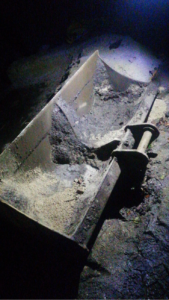
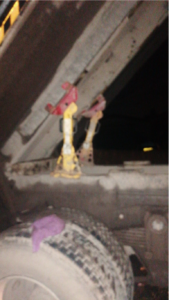
HSE guidance on health and safety in motor vehicle repair and associated industries states that elevated vehicle load areas, such as those on tipper lorries, should be effectively propped if access is needed below them. Props should only be used on firm, level ground and must be designed to adequately carry the loads placed on them.
Salford Grab Hire Limited of Fairacre Astley Moss, Tyldesley, Manchester pleaded guilty to breaching Section 2(1) of the Health and Safety at Work etc. Act 1974. The company was fined £10,000 and ordered to pay costs of £3,475.90 at Warrington Magistrates’ Court on 27 January 2026.
HSE Inspector Rose Leese-Weller said: “Every year we see serious and sometimes fatal injuries to people working under a poorly propped vehicle body. Employers must not underestimate the risks involved and must ensure that appropriate equipment and systems of work are used when undertaking such work.”
This HSE prosecution was brought by HSE enforcement lawyers Julian White and Nathan Cook, and paralegal officer Rebecca Withell.
Notes to Editors
- The Health and Safety Executive (HSE) is Britain’s national regulator for workplace health and safety. We are dedicated to protecting people and places and helping everyone lead safer and healthier lives.
- More information about the legislation referred to in this case is available.
- Further details on the latest HSE news releases are available.
- Relevant guidance can be found here Health and safety in motor vehicle repair and associated industries
- HSE does not pass sentences, set guidelines or collect any fines imposed. Relevant sentencing guidelines must be followed unless the court is satisfied that it would be contrary to the interests of justice to do so. The sentencing guidelines for health and safety offences can be found here.


